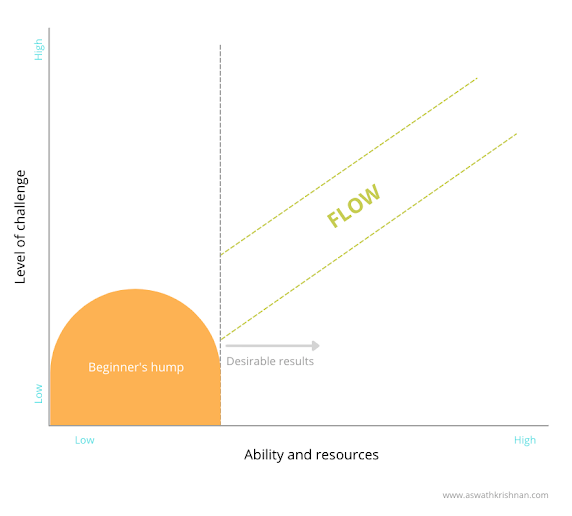I read only one book in a year and it was great

It's the start of a new year - a wonderful and optimistic time where we start off with a clean slate, lots of hope, goals, and resolutions. The general practice is to set lofty goals to read 25 books, pursue 3 hobbies, travel to 5 places, etc. My story below might make you consider an alternate approach of aiming to do less. I think I read only one book in 2019. It wasn't even a big book. It was ~100 pages on the Buddhist Eightfold path. The book had 8 key chapters and each chapter had 4 activities. I was reading this as a part of the program organized by Insights Meditation center. We read one chapter a month, then met for a group session, and practiced one activity per week, before moving to the next chapter. The group sessions were usually 1-2 hours long. The experts leading the program would give an hour talk explaining the summary and nuances of the topic covered in the chapter. We'd break out into small groups a few times to share our opinions and experiences on ...













